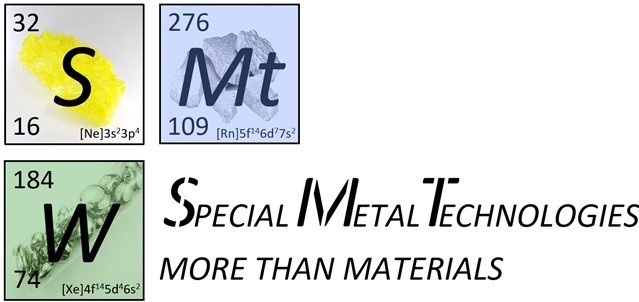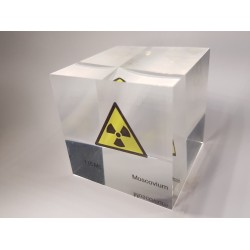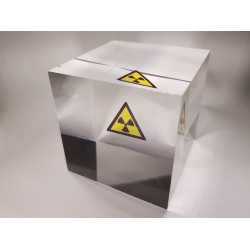- Shop
- Acrylic cubes
-
Elements
- Hydrogen
- Helium
- Lithium
- Beryllium
- Boron
- Carbon
- Nitrogen
- Oxygen
- Fluorine
- Neon
- Sodium
- Magnesium
- Aluminium
- Silicon
- Phosphorus
- Sulfur
- Chlorine
- Argon
- Potassium
- Calcium
- Scandium
- Titanium
- Vanadium
- Chromium
- Manganese
- Iron
- Cobalt
- Nickel
- Copper
- Zinc
- Gallium
- Germanium
- Arsenic
- Selenium
- Bromine
- Krypton
- Rubidium
- Strontium
- Yttrium
- Zirconium
- Niobium
- Molybdenum
- Technetium
- Ruthenium
- Rhodium
- Palladium
- Silver
- Cadmium
- Indium
- Tin
- Antimony
- Tellurium
- Iodine
- Xenon
- Cesium
- Barium
- Lanthanum
- Cerium
- Praseodymium
- Neodymium
- Promethium
- Samarium
- Europium
- Gadolinium
- Terbium
- Dysprosium
- Holmium
- Erbium
- Thulium
- Ytterbium
- Lutetium
- Hafnium
- Tantalum
- Tungsten
- Rhenium
- Osmium
- Iridium
- Platinum
- Gold
- Mercury
- Thallium
- Lead
- Bismuth
- Polonium
- Astatine
- Radon
- Francium
- Radium
- Actinium
- Thorium
- Protactinium
- Uranium
- Neptunium
- Plutonium
- Americium
- Curium
- Berkelium
- Californium
- Einsteinium
- Fermium
- Mendelewium
- Nobelium
- Lawrencium
- Rutherfordium
- Dubnium
- Seaborgium
- Bohrium
- Hassium
- Meitnerium
- Darmstadtium
- Roentgenium
- Copernicium
- Nihonium
- Flerovium
- Moscovium
- Livermorium
- Tennessine
- Oganesson
- Buch
- References
- Periodic Tables
- Metalle Wimmer
- Metametals
Moscovium
Moscovium, with the chemical symbol Mc and atomic number 115, is an artificially produced chemical element that was first synthesized in 2003 at the Joint Institute for Nuclear Research (JINR) in Dubna, Russia. The discovery is credited to the research of Yuri Oganessian, Vladimir Utyonkov, and their teams. Moscovium was created through the fusion of americium-243 with calcium-48 nuclei.
The name "Moscovium" pays homage to the Russian capital, Moscow, emphasizing Russia's contributions to the discovery of new elements. The naming reflects Moscow's role as a center for scientific research. The discovery of Moscovium was a significant advancement in the exploration of the heaviest elements in the periodic table. Moscovium is extremely rare on Earth and does not occur naturally. It is artificially produced in particle accelerators and has limited applications, mainly in scientific research to study the properties of transuranic elements.
The key Moscovium isotopes are Moscovium-289 and Moscovium-290. Moscovium-289 has a half-life of about 220 milliseconds, while Moscovium-290 is approximately 650 milliseconds.
There are 2 products.
Active filters


